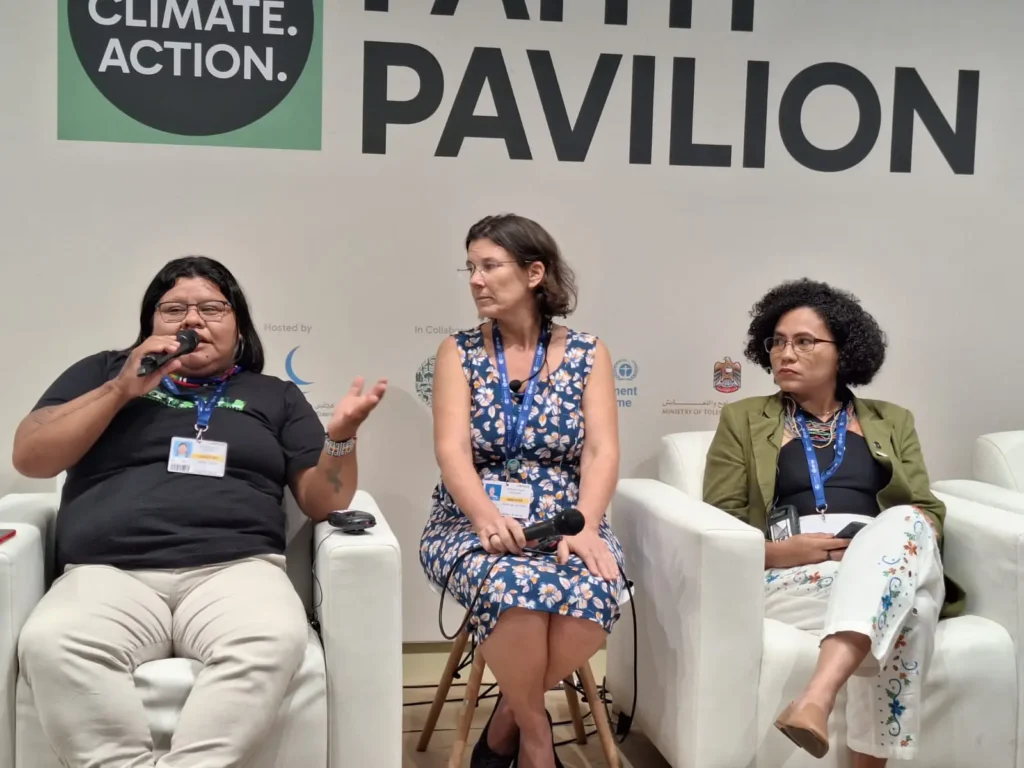Dubai, United Arab Emirates In the midst of the information from the massive presence of the representatives of the oil industry, at a Conference in the Mood, and the feel of it, such as Dubai, COP28 underlines the artificiality of words and statements, the end of the first week of the conference came to an end, as well as the participation of the Network in the Juruena Live. In its most recent event, which is entitled “Increasing trust and transparency to the energy transition that is fair in the context of the Agreement in Paris,” in the hall of Faith, Martha Tipuici the people of the Manoki, he was on the side of the Edel However, the national secretary of the peoples and traditional communities, and sustainable rural development, the Ministry of Environment and Climate Change (MMA). Women helped in the understanding of what has to be transparency in the discussions on the climate at the local level. “Just transition of the traditional peoples and communities to understand the documents, being able to discuss and debate. Transparency is a list of social justice. This is to ensure effective participation in the negotiations,” said Edel.
Sponsored by the International Cooperation for Development and Solidarity (CIDSE), pro-poor, and Fastenaktion, the panel began with a speech from the Tipuici, demonstrating that the barriers for a wide range of situations at the local level when it comes to energy.
“The dams are rarely used in the energy transition, but in Brazil, it’s up to them to prop up a good portion of their energy from renewable sources. But that’s not the debate of the impact, especially the smaller ones that hit us in the valley of the Juruena river. So, there is no transparency.”
Martha Tipuici

Warning Tipuici call attention to the violation of human rights in the territory at the time, the company is pressing for a radical decline of fossil fuels, and if you want to have the chance to fulfill the Agreement in Paris to stabilize the temperature of the planet, the 1.5 ° C above pre-industrial levels.
“We have our own protocols, but they are not currently being met by the government. We talk about a lot of the energy transition, but it’s also important to realize that the power of the small dams that feed the farmers, which they cut trees, and all of this has to do with climate change”
Martha Tipuici
The problems with the guarantee of a fair and sustainable for their actions in the fields of mitigation, as exemplified by the Tipuici, providing evidence for the analyses presented in the following, by David Knecht, the Fastenaktion. He has reported on a study that tried to monitor and assess the extent to which countries are making progress in the implementation of their Contributions to the Nationally Determined (NDCs), or may be, its commitments within the Agreement in Paris, and they are ensuring that mitigation policies that are socially just, and environmentally sustainable. The study involved six countries, including Brazil. And it has been found that, in general, inconsistent, and incomplete. According to the report, ‘ based on the data in 2021, by the start of 2023, (that is, without regard to the education of Brazil, up to date in September, for a comprehensive review), the (NDC) – the brazilian has not been shown in detail, and I was still very little information on monitoring and evaluation. At the time of scan action, it focuses on initiatives by the government to tackle climate change.

Spirituality and the weather
To discuss the energy transition that is fair in the hall of Faith is aroused a certain curiosity. It can be explained by the fact that faith-based organizations (Faith-based organizations), and religious leaders, have been increasing in the Climate Convention, showing that spirituality has a role in the fight against climate change. For this reason, and for the first time in the meetings of the Conference of the Parties was for a Pavilion in the Faith and in the blue zone, where there are events in an official capacity. Dedicated to make sure you have room to a different faith traditions, and perspectives in order to achieve a better future, this is the stage for you to consider a proposal by the Tipuici after a question from the audience about the spirituality that is involved in the fighting in the territory.
“The development of income tax in the region that directly affects us spiritually. We, indians, are a part of where we came from. All of the elements are the owner and, in my culture, the one who has the care of rivers is a body of women. This is why, when we look at the construction of a hydroelectric power plant on the site of the sacred, it affects our way of living.”
Martha Tipuici
